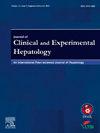肝病学人工智能中的伦理、偏见和治理:迈向安全与公平的未来
IF 3.3
Q2 GASTROENTEROLOGY & HEPATOLOGY
Journal of Clinical and Experimental Hepatology
Pub Date : 2025-06-21
DOI:10.1016/j.jceh.2025.102628
引用次数: 0
摘要
人工智能(AI)正在从根本上改变现代医学的实践方式,旨在推进和加速患者护理,改善患者体验和结果。然而,人工智能面临着一些挑战,包括但不限于道德、监管和公众信任。本文探讨了人工智能在医疗保健中的治理方法,特别是在肝病学中。随着人工智能的不断发展,对于医疗保健提供者和我们的肝病学家社区来说,了解这种增长的含义和影响以及这对我们的实践和患者意味着什么将是至关重要的。我们借鉴现有的人工智能框架、医学伦理原则以及优质医疗保健原则,提出我们的肝脏学人工智能框架。我们提出的框架包括以患者为中心的护理、无害和安全、公平、透明、问责、安全和隐私。对于每一个主题,我们讨论与肝病学相关的例子。我们还为肝病学家提出了一个行动计划,告诉他们如何在日常实践中坚持这些原则。虽然许多肝病特定的人工智能应用目前正在研究中进行测试,但它们还没有进入“黄金时段”。因此,肝病界有时间考虑建立治理结构,为实施人工智能并将其整合到临床护理中所带来的固有挑战做好准备,以确保护理是负责任的、合乎道德的、安全和有保障的。通过仔细和认真的规划,包括相关利益攸关方,并为治理奠定基础,人工智能可以提高肝病学的卫生保健质量,提高效率,提高安全性和公平性。本文章由计算机程序翻译,如有差异,请以英文原文为准。
Ethics, Bias, and Governance in Artificial Intelligence for Hepatology: Toward Building a Safe and Fair Future
Artificial intelligence (AI) is fundamentally changing how modern medicine is practiced with the intent of advancing and accelerating patient care and improving both patient experience and outcomes. AI, however, has been confronted by several challenges, including but not limited to ethics, regulation, and public trust. This paper explores an approach to AI governance in healthcare, specifically in hepatology. As AI continues to grow, it will be crucial for healthcare providers and our community as hepatologists to understand the implications and impact of this growth and what this means for our practice and patients. We draw from existing AI frameworks, principles of medical ethics, as well as quality healthcare principles to propose our framework for AI in hepatology. Our proposed framework includes patient-centered care, non-maleficence and safety, equity, transparency, accountability, and security and privacy. For each of these topics, we discuss examples relevant to hepatology. We also propose an action plan for hepatologists on how each of these principles can be upheld in our day-to-day practice. While many hepatology specific AI applications are currently being tested in research studies, they have not yet made it to “prime time.” As a result, the hepatology community has time to consider governance structures to put in place in preparation for the inherent challenges that come with AI implementation and integration into clinical care to ensure that care is responsible, ethical, safe, and secure. With careful and conscientious planning, the inclusion of relevant stakeholders, and laying the groundwork for governance, AI can improve quality of health care in hepatology with efficiency, improved safety, and equity.
求助全文
通过发布文献求助,成功后即可免费获取论文全文。
去求助
来源期刊

Journal of Clinical and Experimental Hepatology
GASTROENTEROLOGY & HEPATOLOGY-
CiteScore
4.90
自引率
16.70%
发文量
537
审稿时长
64 days
 求助内容:
求助内容: 应助结果提醒方式:
应助结果提醒方式:


